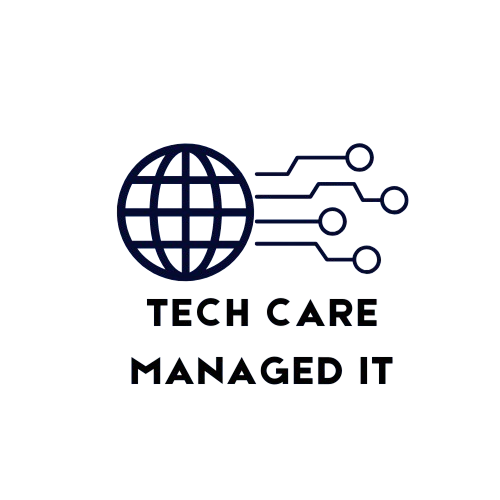Why More Professionals Are Making the Transition to Tech
In today’s economy, more people are choosing to make the transition to tech because of the opportunities it brings. Technology roles are no longer limited to Silicon Valley—they now exist in nearly every industry, from healthcare to retail to education. This means professionals with diverse backgrounds can find a path into tech that aligns with their passions. Along with this variety, the promise of higher salaries and career stability makes tech an appealing destination for career changers. Another factor is the flexibility many tech jobs offer, including the ability to work remotely, which supports better work-life balance. Digital transformation is reshaping businesses globally, creating demand for workers who understand both technology and business needs. These factors together explain why the transition to tech has become one of the most popular career moves of the past decade.
Recognizing Transferable Skills That Make the Transition to Tech Easier
One of the biggest myths is that you need to start from scratch to move into a tech career. In reality, transferable skills play a huge role in making the transition smoother. Communication, problem-solving, and teamwork are critical in technology, just as they are in other industries. Project management experience is another valuable skill since tech roles often involve coordinating teams, timelines, and deliverables. If you come from finance, marketing, healthcare, or education, you likely already have abilities that can strengthen your application. For instance, teachers often make excellent UX designers because they understand user needs and learning flows. Recognizing and presenting these skills confidently can reduce the intimidation factor of transitioning into a new industry. By reframing your background, you can prove you are already more prepared than you think.
Exploring Tech Career Paths for Different Backgrounds
The beauty of the transition to tech lies in the number of career paths available. If you enjoy analytical problem-solving, software development or engineering could be a great fit. For those who are detail-oriented and love working with numbers, data science and analytics provide opportunities to explore patterns and insights. Creative professionals often thrive in UX/UI design, where empathy and visual thinking are critical. Cybersecurity is another growing field that appeals to individuals who enjoy protecting systems and identifying vulnerabilities. Professionals with leadership experience might gravitate toward project or product management roles, where business strategy intersects with technology. Each of these paths allows people from non-tech fields to contribute their strengths while learning new technical skills. The diversity of tech roles means there is truly something for everyone willing to explore.
Education and Training Options to Support a Transition to Tech
Education is an essential part of preparing for a new career in technology. Fortunately, the pathways to learning are more accessible than ever. Online bootcamps provide intensive training that helps learners build practical skills quickly. Certifications are another option that demonstrates credibility in specialized areas like cloud computing, cybersecurity, or UX design. For those looking for affordability, free platforms such as Codecademy, freeCodeCamp, and Coursera offer courses in coding, data, and design. Joining peer-learning groups and mentorship programs can also accelerate learning by providing support and accountability. Importantly, building a portfolio of projects—whether through coursework or self-directed efforts—helps showcase your abilities to employers. Unlike traditional degrees that can take years, these modern options allow you to pivot more efficiently. By combining structured learning with practice, you can be job-ready faster than you think.
Overcoming Common Challenges During a Transition to Tech
Shifting into technology does not come without challenges, but they can be overcome with the right strategies. Imposter syndrome is common, especially for those who feel late to the industry, but it helps to remember that tech thrives on diversity of experience. Another challenge is balancing full-time work with upskilling, which requires time management and consistency. Financial concerns can also be a barrier, but many affordable or even free resources exist to lower costs. Breaking into a competitive market without prior experience may feel daunting, but side projects, internships, and networking can bridge the gap. Staying motivated through setbacks is another hurdle, yet persistence pays off in tech careers. Having a supportive community or accountability partner can make the process less isolating. Facing these obstacles head-on helps build resilience, which is an asset in any tech role.
Building a Roadmap for Your Transition to Tech
Making a career change without a plan can lead to frustration, so building a clear roadmap is essential. Start by setting realistic goals, such as mastering a specific language or tool within three months. Next, evaluate your strengths and interests to choose the right tech niche that excites you. Networking with professionals through LinkedIn, industry events, or online groups can provide insight and open doors. Crafting a resume that highlights your transferable skills is crucial—employers want to see how your past experience translates. Updating your LinkedIn profile with keywords related to your target role can help recruiters find you. Consider creating a learning schedule that fits your lifestyle, whether you dedicate evenings, weekends, or daily study blocks. By breaking down the process into steps, your transition to tech becomes manageable and motivating.
Landing Your First Role After Transitioning to Tech
The first job in tech often serves as the biggest hurdle, but there are proven strategies to help. Applying to entry-level or bridge roles, such as technical support or QA testing, can provide experience that leads to higher-level opportunities. Freelancing is another way to demonstrate your skills while building a portfolio of real-world projects. Internships, even for mid-career professionals, can be a worthwhile stepping stone into the industry. Tailoring each job application to highlight both your new technical skills and your previous background makes a strong impression. Employers appreciate candidates who bring diverse perspectives to problem-solving. Preparing thoroughly for interviews, including technical assessments and behavioral questions, will also improve your chances. With persistence and strategy, that first role becomes the launchpad for long-term growth in tech.
Long-Term Growth After the Transition to Tech
Transitioning into tech is just the beginning—long-term growth requires continuous learning. Technology evolves rapidly, and professionals must keep up by developing new skills. Advanced certifications can open doors to higher-paying positions in cloud architecture, machine learning, or cybersecurity. Networking with other professionals ensures you stay updated on trends and opportunities. Leadership paths, such as becoming a team lead or product manager, often emerge once you gain experience. Specialized roles also exist for those who want to go deeper into areas like AI, blockchain, or DevOps. Future-proofing your career means embracing adaptability and staying open to learning. With dedication, the transition to tech can lead to a fulfilling, evolving career that provides stability and excitement.
Frequently Asked Questions
Do I need a degree in computer science to transition to tech?
No, many people enter the field without a traditional computer science degree. Employers value skills, portfolios, and certifications just as much.
How long does it usually take to shift into a tech career?
Timelines vary depending on your chosen path, but most people take between six months and two years of consistent learning.
Can someone over 40 successfully transition to tech?
Yes, many professionals make the shift later in life. Transferable skills and life experience are assets in the industry.
What are the most affordable ways to learn tech skills?
Free platforms like freeCodeCamp, Khan Academy, and YouTube tutorials are excellent starting points. Low-cost bootcamps also provide structured support.
Is remote work common after transitioning to tech?
Yes, many tech roles are remote-friendly, offering opportunities to work from anywhere with a reliable internet connection.
Takeaway
Making the transition to tech may feel overwhelming at first, but it is achievable with the right approach. By identifying your transferable skills, choosing the right learning path, and building a strategic roadmap, you can break into the industry with confidence. While challenges such as imposter syndrome and competition exist, persistence and preparation pave the way forward. Once you land your first role, ongoing growth ensures long-term career success. Tech is a field where continuous learning and adaptability pay off. With determination and focus, your career change can unlock new opportunities, financial stability, and meaningful work in an ever-evolving industry.









